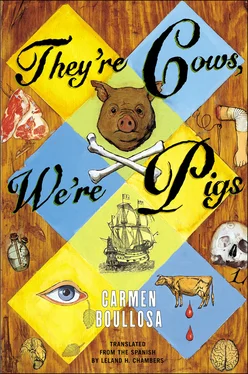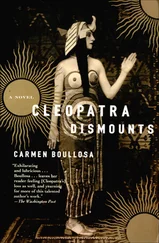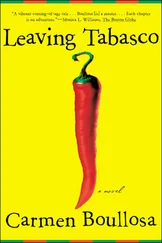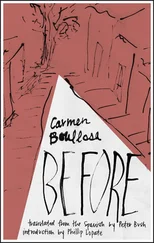Le Vasseur died in an assassination by his two godsons and protégés whom he had declared successors to his fortune because of the affection he professed for them: Thiébaut, who maintained a beautiful prostitute (a constant motive for feuding with Le Vasseur), and Martin. One morning, when Le Vasseur went down to his warehouse, his two protégés waited to attack him along with eight others, first with musket blasts that missed their mark because they confused him with his image in a mirror he had had brought directly from Murano (which was made of glass and extremely faithful) in a caprice that no one understood in him, but which nonetheless saved him from death for a moment. When he heard the shots, Le Vasseur, in order to protect himself, ran toward the black who was carrying his sword, moving out of the mirror’s range and making a real target of himself, upon which Thiébaut intercepted him and killed him by stabbing him with his knife. Before dying, Le Vasseur recognized his beloved murderer and in his shock, repeated Caesar’s remark to Brutus, “Is it you who kill me, Thiébaut?” and Thiébaut, as if such a remark had disarmed him, settled the government on De Fontey (an enemy of his protector and victim Le Vasseur), abandoned the prostitute, leaving her whatever was now his through his inheritance from Le Vasseur, and spent the rest of his short life in a hell comparable to The Inferno, until he put a rope around his own neck to end his days.
Pineau on the floor did not have the appearance of wanting to say a last word. That night we had not been alone. A surgeon’s apprentice, come there to relieve me in my duties, was staying with us, and also a pirate whose wounded knee had become infected, perhaps because of a splinter still lodged deep inside; the following morning we were to explore it with surgery to find out. He had arrived close before nightfall, borne on his companion’s shoulder, enveloped in the fetid odor of a wound in bad state, in search of help and afraid of losing the leg for which he would not even receive compensation now, the booty being already distributed.
Pineau and I were in the habit of chatting until the night was very far gone, though we would go to sleep early if we wished to rise early to undertake one of our endless walks.
In the afternoons I would read and study the treatises of Paré while Pineau would go to the meetings of the Brethren, in the mornings I would sometimes assist Pineau with his operations, and now and then he would allow me to put my hand in while he observed and made remarks; or if not we would go exploring the whole day, even several days in a row, where, listening to Pineau, I learned to observe, to love nature, and to understand the appearance and history of Tortuga, which he knew so well and about which he talked so much.
We would always talk in the dark, and some nights he would seize me by the hips and, mimicking le Nègre Miel with Smeeks or Smeeks with Isabelle, would make use of Smeeks. On one or two occasions I took him to Isabelle, when I was there to administer some remedy and did not feel in the mood to ask for payment, with the object of having him collect it instead, but he seemed as little interested in women as I was at that time; or perhaps I only imagine it, because the truth is that we never spoke directly about our sexual activities with them.
About women, yes. He was the most ardent proponent of forbidding them on Tortuga. He believed the Brethren of the Coast would come crashing down in a heap if women came on the island, that rivalries would enter in, that it would be impossible to go on prohibiting private ownership because everyone would want his woman for himself as an untransferable property, and they in their turn would want their own things and their own land because women do not know how to think about any moral good, that they would take it on themselves to spread envy, that they, being anxious for a more complicated daily life, would infest the island with useless slaves, with a shoddy servant class that would only bring more problems, and many other arguments it would make no sense to note down here, they being not to the point; saving the one that if women serve to clean men of their seed, the body of another man can do that just as well, and better, and whoever does not believe this should practice it, as it does no harm. Moreover, there would never be a shortage of youths on Tortuga, Europe being sure to birth and supply them, and the island relieved of caring for the children.
We were not alone that night, and we were not silent. Something made us laugh, I do not recall what it was, for that night’s high spirits have been erased from my memory, as if there were no longer room therein for all our laughter and good feelings, which surely must have irritated the foul-smelling pirate (although behind Pineau’s back I had already fixed him up with something to put his wound to sleep, and in truth his leg was more than asleep), on the night of the treacherous murder of Pineau.
Suddenly, a troop of men burst into the dark room without offering a word. It was not just two or three, I calculate there must have been twelve, fifteen, as many as could fit in there, all milling about, bringing a strangely quiet turmoil with them. They quickly pounced on us without giving us time to take up our weapons to defend ourselves. Without understanding what was taking place, I pulled and tugged and screamed out, “Let loose of me, what are you doing?” and what the devil else I shouted at them in the midst of their silence I do not know. A muffled, brief grunt came from Pineau, and I stopped tugging: I knew, I felt, that they had come to murder him. “They,” whoever they were.
“We’ve poisoned le Nègre Miel, like we promised. And now we’ve stuck it into you, you pigs. We’re cattle, cattle, cattle!” They ran out shouting their “cattle!” as I jumped over to Pineau’s bleeding body and begged the gods to bring him back to life, enveloped in tears, examining that body pocked with punctures by the dagger, a heart that beat no longer; and hoping to feel the breath that his motionless body no longer exhaled.

He was not baptized le Nègre Miel but le Nègre Pierre. Bound to the wheel by a long white band of fabric coiled around the neck, he goes around night and day. This gives the lie to the veracity of the story as I have been telling it. Moreover, he is not robust and heavy, with a solid, well-put-together body; the continual movement has distorted his figure, his shoulders are exaggeratedly broad, his buttocks narrow, his legs grotesquely muscular, and his neck, perhaps because of the effect the long white strap produces, is excessively long and thin, topped off by a small, round head.
He turns the wheel; his gaze is lusterless; the strap gleams strangely white, as if it were extremely clean, but it is not clean nor is it so white: the blackness of his skin emphasizes it.
When he is needed they loosen the white strap, setting free his hands and letting it turn above his body, not to untie him, but to release him from the wheel. He bears no sash across his chest, and he never spoke to me. His power is in his words; he throws seashells on the ground, interpreting the present and foreseeing futures that always come true.
This truth destroys the veracity of my story, the one I have been telling. But we should not be too fixed on this outward appearance, because both are the same one, except that instead of advancing along its horizontal axis I have suddenly moved upward across it, vertically, and this is what I have found. Believe me. This le Nègre Pierre turning the wheel is also true. When his own people and the French discovered his gifts, they bound him to the wheel to keep him from getting away, and that is where le Nègre Pierre spends his days, tied like a mule so the wild beast that he is cannot escape.
Читать дальше













